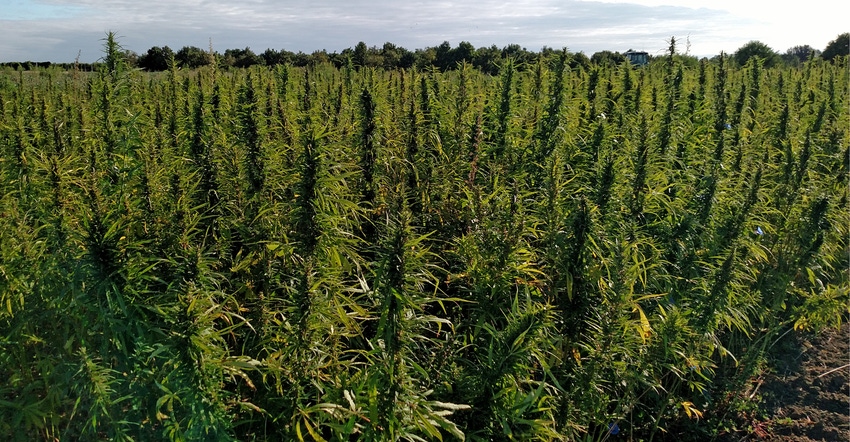
Don Robison, seed administrator with the Office of Indiana State Chemist and Seed Commissioner, found himself in the middle of the rush to grow hemp after the 2018 Farm Bill legalized it. Before it could be grown commercially in Indiana, however, the Legislature needed to establish guidelines and procedures that lined up with federal protocol. If that happened, Robison believed hemp could be a viable option for 2020.
Well, it happened — the Legislature passed the necessary legislation. That’s not the final step, however. Robison must apply to USDA for a licensing program so producers can grow hemp in 2020. That process could take a few months.
There are about 2,000 acres of industrial hemp growing in Indiana this year under a research license granted through Purdue University. Robison handled granting of research licenses.
Grower interest
Justin Schneider, director of state government relations for Indiana Farm Bureau, says several farmer-members have expressed interest in growing hemp once it clears legal hurdles. He expects several to pursue licenses if USDA approves Indiana’s program.
One thing the state legislation did, Schneider says, is create an advisory board to advise the seed commissioner on regulations. That board sunsets after two years. Members will include law enforcement officials and people who grow hemp. The Indiana State Department of Agriculture is also represented on the advisory board.
“Expect ISDA to focus more on the marketing side of the hemp issue,” Schneider says. “It will be involved in promotion and marketing.”
Based on what’s happening in other states, expect industrial hemp to be grown for both fiber and oil. So far in Kentucky, oil seems to be the market driver. Kentucky has about a two-year head start on the process. Several former tobacco farmers there grew industrial hemp legally, primarily for oil, in 2018.
“Several of our members expressing interest in hemp are former tobacco growers in southeast Indiana,” Schneider adds.
Illinois is also slightly ahead of Indiana on this issue. Based on a statement from the Illinois Farm Bureau, the governor and director of agriculture worked together to make license applications available in time for the 2019 planting season.
“Our organization has supported legalizing industrial hemp production for more than two decades,” says Richard Guebert Jr., Illinois Farm Bureau president. “We are excited for the opportunities this crop may provide to the farmers who have an interest in its production.”
Legal path
Schneider also sees opportunities for Indiana farmers, assuming Indiana’s licensing program goes live for 2020. However, he encourages farmers to make sure they have contracts lined up for the end product before growing the crop.
“It’s not a commodity like corn or soybeans at this point,” he says. “You need to know where the product is going before you grow it.”
One reason for the presence of law enforcement officials on the advisory board during the first two years is to make sure that regulations regarding THC content are met. The THC content of industrial hemp can’t exceed 0.3%, Schneider explains. The THC content of marijuana, a relative of industrial hemp, is many times that level.
“There shouldn’t be anyone wanting hemp for that purpose, because the THC content is so low,” he says. “At the same time, authorities want to make sure regulations are in place to monitor THC content.”
About the Author(s)
You May Also Like




